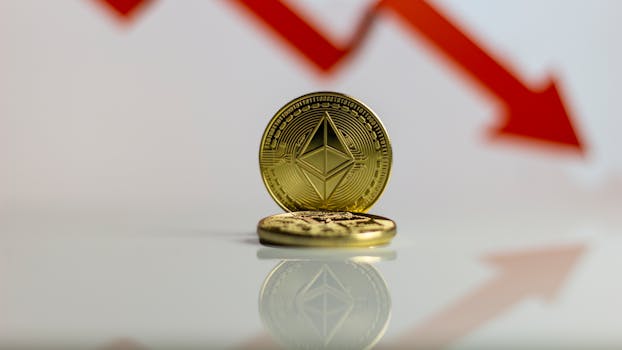Companies with the best and the worst technicals.
Lists of companies in NSE500 with the best and the worst technicals...
Lists of companies in NSE500 with the best and the worst technicals...
Lists of companies in NSE500 with the best and the worst fundamentals...
List of the latest important filings for NSE500....

The article reviews the implications of Aadhaar and PAN integration for tax...

A detailed analysis of the dynamics between treasury bonds, commodities, and equities...

The article discusses the recent increase in consumer confidence in the U.S.,...

As geopolitical tensions escalate in the Middle East, particularly with the ongoing conflicts involving key nations such as Israel and Iran, Asian markets are reacting in ways that reflect both their vulnerabilities and resilience. The ramifications of these hostilities extend far beyond regional borders, impacting global oil prices, trade dynamics, and security concerns across the Asia-Pacific region.
Following the latest flare-up of violence in Gaza and Hezbollah's increased military posture along the Israeli-Lebanese border, Asian stock markets exhibited a cautious stance. On 19 June 2025, leading indices across the region, including the Nikkei 225 in Japan and the Hang Seng Index in Hong Kong, experienced a dip of approximately 1.5% and 2.0% respectively. The decrease was largely driven by investor fears of prolonged conflict and its potential to disrupt oil supplies from the Middle East.
In contrast, the energy sector has seen a surge, with shares of Asian oil companies such as PetroChina and INPEX rising by 3.2% and 2.9% respectively. The crisis appears to have reinvigorated concerns about supply chain vulnerabilities, prompting a flight to energy stocks amid volatile global oil prices that have pushed Brent crude to hover above $85 per barrel.
With the geopolitical atmosphere in the Middle East increasingly unstable, Asian economies heavily reliant on oil imports are feeling the strain. As of mid-June, countries like Japan and South Korea, which collectively import around 80% of their oil, have begun exploring alternative energy sources and bolstering their strategic reserves. Japan's Ministry of Economy, Trade and Industry has reported a 10% increase in crude oil stockpiles to mitigate supply shocks.
The surge in oil prices has triggered inflationary pressures, exacerbating existing economic challenges in nations like Indonesia and India. India's consumer price index (CPI) rose to 6.2% in May 2025, partly due to rising fuel costs, prompting the Reserve Bank of India to hint at potential interest rate hikes to combat inflation.
The recent hostilities have also raised questions about existing trade relationships within Asia and with the Middle East. Countries like China, which maintain strong economic ties with Iran, are now recalibrating their diplomatic interactions amidst calls for peace and stability. The China-Iran comprehensive cooperation agreement, worth an estimated $400 billion over 25 years, remains a focal point of contention in the geopolitical narrative, even as China navigates its economic interests in maintaining stability in oil supply routes.
South Korea, on the other hand, has sought to strengthen its ties with Israel, recognizing the latter's role in technological advancements and defense. As part of this strategy, South Korea announced a $1 billion defense export deal with Israel, underscoring its commitment to nurturing diplomatic ties while ensuring energy security.
In light of the recent Middle Eastern tensions, Asian nations are reevaluating their security frameworks. The Quad alliance (comprising the U.S., India, Japan, and Australia) has stepped up its maritime security initiatives in the Indo-Pacific region, emphasizing the need for collective security in light of potential spills from Middle Eastern conflicts.
Notably, Japan has been proactive, participating in joint military exercises with both the United States and Indian Naval forces, a pivot that signals Tokyo’s commitment to enhancing regional security in an era defined by uncertainty. As tensions unfold, the focus on defense collaboration is likely to increase, with expectations set for greater military spending across the region.
Looking to the future, the intersection of Middle Eastern tensions and Asian markets raises profound questions about the economic landscape in the region. High energy costs coupled with supply chain disruptions could hinder post-pandemic recovery efforts across Asia. According to a 2025 report from the Asian Development Bank, the region is slated for 5.2% GDP growth this year, but prolonged instability could thwart these projections.
Trade experts caution that the potential for decoupling economic ties between Asia and the Middle East may emerge as a long-term consequence of ongoing tensions. As countries seek to enhance energy security, investments in renewable energy infrastructure have been earmarked, with nations like India aiming to generate 500 GW from non-fossil fuel sources by 2030, reflecting a shift towards sustainability amidst geopolitical anxieties.
The ongoing tensions in the Middle East present a complex tapestry of challenges and opportunities for Asian markets. The immediate financial repercussions, characterized by volatility in stock and energy markets, signal a cautious approach from investors and policymakers alike. As geopolitical realities continue to unfold, the resilience of Asian economies will be tested, requiring innovative strategies in energy management, trade relationships, and security frameworks to navigate the uncertainties ahead.

Heightened geopolitical tensions in the Middle East are driving significant increases in...

Examining the trends in AI funding with a focus on xAI's recent...